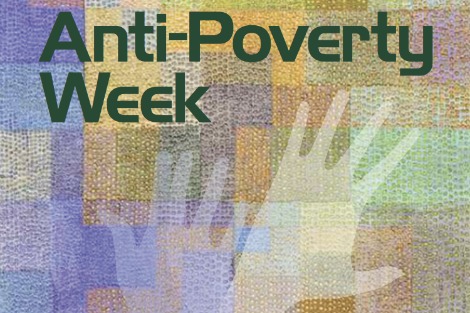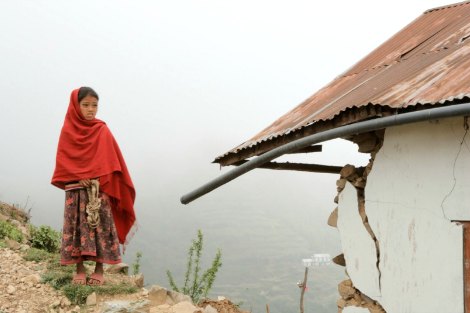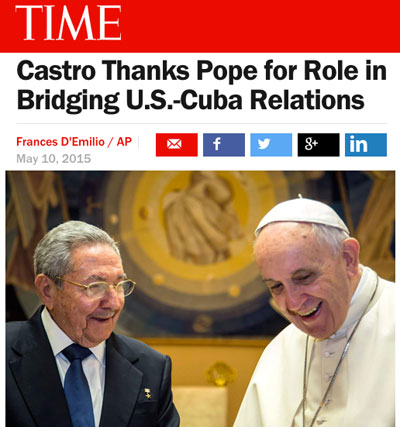Keywords: Society Of Jesus
There are more than 200 results, only the first 200 are displayed here.
-

AUSTRALIA
- Frank Brennan
- 23 October 2015
4 Comments
Francis knows there are all sorts of issues inside and outside the Church where for too long people with power have tried to keep the lid on, in the hope that the problems and complexities will go away, often by parodying those who see the problems or complexities as small 'l' liberals or cafeteria Catholics. He delights in being joyful and troubled while contemplating big problems, calling people of good will to the table of deliberation reminding them of the kernel of the Christian gospels. He has the faith and hope needed to lift the lid without fear and without knowing the answers prior to the dialogue occurring.
READ MORE
-

AUSTRALIA
- Andrew Hamilton
- 15 October 2015
23 Comments
The image of the body of Aylan Kurdi cradled in the arms of a Turkish soldier jarred with our sense that poverty is simply the deprivation of material goods — there is no greater poverty than death, and no greater deprivation than that of a child stripped of life. Francis speaks powerfully of the need to address poverty. He insists that the church must move out of its comfortable centre to the margins where the poor live. To address poverty we must know people who live in poverty as our brothers and sisters.
READ MORE 
-

- Frank Brennan
- 18 September 2015
Pope Francis's concerns are not narrowly dogmatic or pedagogical but universally pastoral. He knows that millions of people, including erstwhile Catholics, are now suspicious of or not helped by notions of tradition, authority, ritual and community when it comes to their own spiritual growth which is now more individual and eclectic. He wants to step beyond the Church's perceived lack of authenticity and its moral focus on individual matters, more often than not, sexual. He thinks the world is in a mess particularly with the state of the planet — climate change, loss of biodiversity and water shortages, but also with the oppression of the poor whose life basics are not assured by the operation of the free market, and with the clutter and violence of lives which are cheated the opportunity for interior peace. He is going to great pains to demystify his office. He wants all people of good will to emulate him and to be both joyful and troubled as they wrestle with the probl
READ MORE
-

- Frank Brennan
- 01 September 2015
1 Comment
If you want to form government in Australia and if you want to lead the Australian people to be more generous, making more places available for refugees to resettle permanently in Australia, you first have to stop the boats. If you want to restore some equity to the means of choosing only some tens of thousands of refugees per annum for permanent residence in Australia from the tens of millions of people displaced in the world, you need to secure the borders. The untrendy truth is that not all asylum seekers have the right to enter Australia but that those who are in direct flight from persecution whether that be in Sri Lanka or Indonesia do, and that it is possible fairly readily (and even on the high seas) to draw a distinction between those in direct flight and those engaged in secondary movement understandably dissatisfied with the level of protection and the transparency of processing in transit countries such as Malaysia and Indonesia. The popular evil is that political
READ MORE
-

- Andrew Hamilton
- 30 July 2015
3 Comments
Ignatius of Loyola, whose feast day is on 31 July, is remembered for founding the Jesuits, for his Spiritual Exercises and for the effect Jesuits had on European history and in overseas missions. He was a man who made a difference. But during his life that reputation was not a done deal. One often overlooked event, more accurately an event that failed to happen, shaped decisively how he has come to be remembered.
READ MORE
-

The Society of Jesus in Victoria, Jesuit Communications Winter Raffle 2015. Drawn on Thursday 2 July 2015 (Permit No 10187/15 issued 23 February, 2015)
Congratulations to the winners:1st prize: A Hannan, VIC2nd prize: J Bowskill, QLD3rd prize: A Twigg, VIC4th prize: K Haines, VIC
Thank you to everyone who supported our Winter raffle.
If you missed the opportunity to purchase raffle tickets but would like to support us financially, please consider making a donation.
READ MORE
-

- Greg O'Kelly
- 01 July 2015
3 Comments
The phrase 'the public square' is peppered throughout Frank Brennan's work. The 1988 film Cinema Paradiso depicts the public square in a Sicilian village over 30 or so years, and its slow and subtle change from a place where human beings gather to laugh, play and discuss. Billboards and garish signs appear and it becomes a car park bereft of its humanity.
READ MORE
-

- Frank Brennan
- 24 June 2015
1 Comment
Given the ready access we have to international media and the world wide web, we can no longer plead ignorance of the trouble going on in our world. Those of us who are purist pacifists can presumably put a coherent case for eschewing violence in all cases, even were a madman to be imminently threatening the lives of our most vulnerable loved ones.
READ MORE
-

- William Morris
- 15 June 2015
7 Comments
'Frank points out that the Church cannot credibly proclaim a message of social justice in a pluralist democracy when its own processes fall short of ordinary community standards of justice. It needs to turn its teaching about human rights and human dignity back on itself, the Church, insisting on due process within the life of the Church community.' Bishop William Morris helps launch Frank Brennan's new book Amplifying That Still, Small Voice.
READ MORE
-

- Paul Bongiorno
- 09 June 2015
9 Comments
'In discussing Australia's asylum seeker policies Frank laments the government's deaf ear to calls from the churches, his own included, for a greater measure of compassion and a better way of dealing with the issue of boat people. Frank wryly comments: 'If only the Abbott Government with its disproportionate number of Jesuit alumni cabinet ministers could listen.' Paul Bongiorno launches Fr Frank Brennan SJ's book Amplifying That Still, Small Voice at the Australian Centre for Christianity and Culture, Canberra, 8 June 2015.
READ MORE
-

AUSTRALIA
As a kiwi I had grown up with earthquakes. I remember them large, small and intrusive. Awed by their power, I cherished the still that followed. This is what made Nepal’s second major earthquake so different for me. I will never forget the beginning of the 7.3-magnitude quake, but will never recall the end.
READ MORE 
-

INTERNATIONAL
- Antonio Castillo
- 13 May 2015
2 Comments
They spoke in Spanish and there was genuine Latin American warmness between them during Sunday's historic 55 minute meeting at the Vatican. They will meet again when Francis visits Cuba in September. Castro promised Francis that he would be attending every one of his masses, reminding him that he is a Jesuit alumnus: 'I'm as Jesuit as the Pope'.
READ MORE 